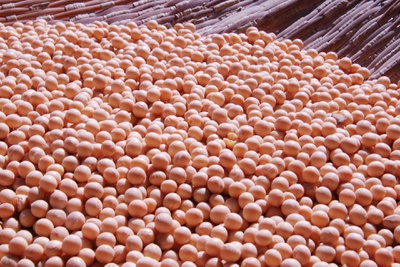Im neuen von Ernst Langthaler geleiteten FWF-Projekt ist eine DoktorandInnen-Stelle für 3 Jahre zu vergeben.
Stellenausschreibung:
Projektmitarbeit „Soy and Agro-Food Transitions: Austria from a Multi-Level Perspective, 1870s-2020s“ (DoktorandIn, 75%, 3 Jahre, Johannes Kepler Universität Linz)
Bewerbungen sind bis 24.1.2022 möglich.
Im Forschungsprojekt „Soy and Agro-Food Transitions: Austria from a Multi-Level Perspective, 1870s-2020s“ (gefördert vom FWF, Leitung: Univ.-Prof. Dr. Ernst Langthaler) ist eine DoktorandInnen-Stelle zu 75% (30 Wst.) für 3 Jahre zu vergeben. Die ausgeschriebene Stelle ist für die Bearbeitung des Zeitraums 1950 bis 2020 vorgesehen. Eine bereits vergebene Stelle bearbeitet den Zeitraum 1870 bis 1950. Einstellungsvoraussetzung ist ein abgeschlossenes Diplom- oder Masterstudium der Geschichte oder einer verwandten Disziplin mit historischer Ausrichtung (Soziologie, Sozialökonomie, Europäische Ethnologie usw.). Frauen werden bei entsprechender Qualifikation bevorzugt aufgenommen. Die Bezahlung richtet sich nach den FWF-Personalkostensätzen (derzeit monatlich EUR 2.237,60 brutto, 14mal pro Jahr). Projektbeginn: 1.3.2022, Projektende: 28.2.2025, Arbeitsstelle: Johannes Kepler Universität Linz (Institut für Sozial- und Wirtschaftsgeschichte).
Englischsprachige Kurzfassung des Projekts:
- Theoretical framework: The project is situated in the international field of (historical) agro-food studies. It investigates transitions of agro-food regimes through the lens of a particular commodity – soy – over a long-term period – the last 150 years – with a focus on a particular country – Austria – in its inter- and transnational setting. The case of soy is particularly interesting, since the crop shifted from a biological curiosity in the late nineteenth century to a major cash crop in the early twenty-first century. In the last decades, Austria has emerged as a trader as well as producer in the global commodity web around soy. In order to address soy-related developments on multiple levels (from local to global) that bring about agro-food transitions, the project rests on a combination of transition theory, food regime analysis, and commodity studies. The project also addresses current debates on sustainable development from a historical perspective: soy as a versatile crop provides a vegetarian alternative to animal-based diets and might play a major role in the ‘greening’ of food production and consumption.
- Research questions: Before soy entered the agro-food regime, it emerged in several niches as a novel solution to problems in agriculture and nutrition. We argue that the emergence of soy and its implementation required certain arrangements of knowledge, commodification and institutions. The central question the project aims to answer is how knowledge transfer, commodity chains and regulatory institutions interacted in soy’s emergence from niche to mainstream in the context of agro-food transitions in Austria’s inter- and transnational setting since the 1870s. This question will be further differentiated with regard to structures and actors at the macro, meso and micro levels that drove soy’s emergence.
- Approach: The project will investigate four temporal episodes in which established regimes come under pressure and open up windows of opportunity for niche innovations. Through transnational connection and international comparisons, the case of Austria will be situated in its global setting. To investigate arrangements of knowledge, commodification and institutions, the project will mainly draw on actor-network approaches, commodity chain analysis, and critical discourse analysis.
Bewerbungen mit Lebenslauf, Werkverzeichnis (Publikationen, Vorträge, Projekte usw.) und approbierter Diplom- bzw. Masterarbeit als PDF-Anhang sind bis 24.1.2022 erbeten an ernst.langthaler@jku.at. Für Rückfragen steht der Projektleiter unter derselben E-Mail-Adresse zur Verfügung.
Bildquelle: Pixabay
